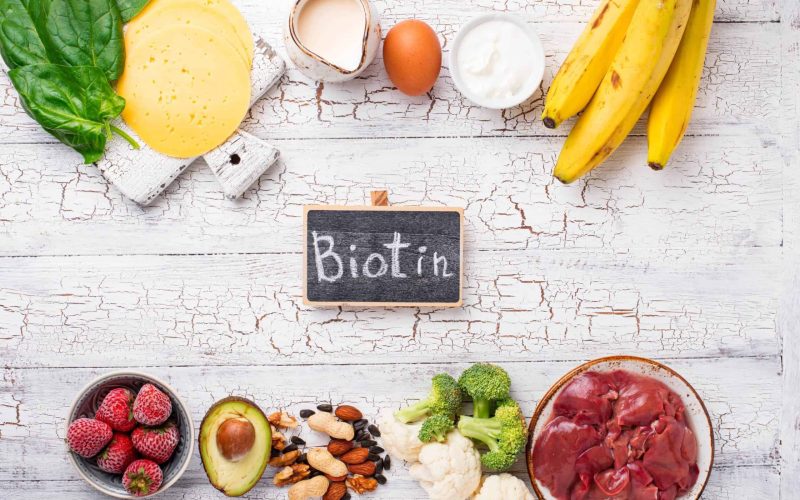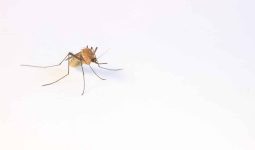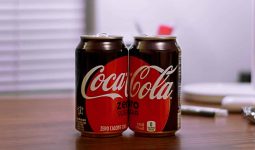Biotin also known as vitamin B7 or vitamin H is a water-soluble vitamin that has a lot of important functions in the human body. It metabolizes proteins, carbohydrates, and fats and converts them into energy.
Biotin is also a co-enzyme. It is called vitamin H because the “H” is gotten from the Greek word “biotos” meaning “substance” or “life”. This important nutrient keeps your nervous system healthy. It also makes your skin, liver, hair, and eyes healthy.
It is also a crucial nutrient needed during pregnancy. It is highly needed for the growth and development of the embryo. It also helps in regulating mood, blood sugar, and help women have healthier babies.
Biotin is mostly gotten from plant foods and excess of it can easily pass out of the body through urine. It is not advisable to take the supplement if you don’t have an underlying condition that needs excess biotin.
The supplement also has side effects like nausea and digestive problems. It is not possible to get biotin toxicity from plant foods.
Health Benefits of Biotin
Helps break down macronutrients
Biotin helps the body break down food nutrients and convert them into energy. Several enzymes involve in the breakdown of proteins, fats, and carbohydrates depend on biotin.
Biotin is actively involved in the following:
- Gluconeogenesis: This is the production of glucose from other sources different from carbohydrates. These include sources from amino acids and enzymes that contain biotin to help initiate the process.
- Breakdown of amino acid: Enzymes that contain biotin are involved in the metabolism of many important amino acids like leucine.
- Synthesis of fatty acids: Enzymes that activate the reactions needed for the production of fatty acids need biotin.
Treats Multiple sclerosis
MS is an autoimmune disease characterized by damaged protective covers of the nerve fibers in the eyes, brain, and spinal cord. Biotin plays an important role in the production of this protective cover called Myelin.
MS patients taking biotin supplements respond positively, especially when given a daily dose of up to 300 milligrams. It stops chronic disability and reverses the progression of the disease.
Prevents and treats diabetes
Biotin helps in regulating glucose levels in the blood. It also prevents kidney damage in people suffering from type I diabetes. Biotin deficiency causes abnormal sugar metabolism.
Biotin helps in the regulation of glucose. People with diabetes have low levels of biotin. Diabetes patients are placed on biotin and chromium picolinate supplements. This reverses insulin resistance.
Helps with ganglia disease
This is an inherited disorder and it is very rare. It affects parts of the nervous system, especially the parts responsible for movement. It is characterized by involuntary muscle tension, muscle weakness, and muscle rigidity.
People with this condition respond to supplementation with biotin and thiamine.
Improves the health of your hair, skin, and nails
Biotin deficiency is quite rare but it does occur. The most common symptom of biotin deficiency is hair loss and a red scaly rash. It has been shown that supplementation with biotin improves this.
This is why it is called vitamin H. H represents the German word “Haar und Haut” and it means “skin and hair”. Biotin prevents and treats brittle nails.
A deficiency in biotin leads to brittle nails that are fragile and crack or split easily. Many hair products contain biotin because it influences the healthy growth of hair.
It makes hair grow stronger and prevents hair loss. Biotin also plays a huge role in maintaining healthy skin. People with psoriasis improve after increasing their intake of biotin.
Many health experts believe that the effect on biotin on skin health is due to its effect on fat metabolism. People deficient in biotin have lots of skin problems.
Aids fetal development
Although this is also rare, pregnant women can be deficient in biotin and this can affect the growth and development of the fetus.
Some doctors prescribe prenatal vitamins containing folic acid and biotin for pregnant women to boost healthy pregnancy.
But, these supplements, especially when taken in high doses have dangerous side effects. It can harm the developing baby. So, it’s better to get your biotin from plants as a pregnant woman than supplements.
Natural Sources of Biotin
Humans cannot synthesize biotin, we have to get it from our diet. A number of foods contain biotin and some of them are:
- Mushrooms
- Apples
- Bananas
- Whole wheat bread
- Cauliflower
- Oatmeal
- Oysters
- Whole grains
- Plain yogurt
- Baker’s yeast
- Cereals
- Cheddar cheese
- Legumes such as peas, bean, lentils, etc. (avoid soy)
- Broccoli
- Nut butter
- Spinach
- Nuts like walnuts, almonds, pecans, peanuts, etc.
- Tuna
- Organ meats (free-range animals not feed with GMO, antibiotics, and vaccines)
- Sweet potato
- Egg yolk
- Sunflower seeds
Make sure you go for the whole and non-processed plant foods because processing techniques affect the content of biotin and other important nutrients.
Signs and Symptoms of Biotin Deficiency
Common symptoms of biotin deficiency are:
- Increased frequency of infections
- Impaired immune functions
- Seizures
- Ataxia, the inability to control body movement
- Sensations like tingling and numbness in the hands and feet
- Hallucination
- Lethargy
- Depression
- Scaly red rashes around the genitals, eyes, nose, and mouth
- Alopecia and hair loss
Side Effects of Biotin Supplements
Supplements containing biotin have side effects unlike the food sources of biotin. Apart from affecting a growing fetus, biotin supplements can also interfere with the result of your lab tests.
It can affect test results for thyroid gland or hormone levels. It also affects cardiac troponin levels, a hormone used in diagnosing heart attacks. Biotin supplements also interfere with your vitamin D level results.
This can lead to misdiagnosis and bogus test results. This is dangerous for your health and also makes you waste money on unnecessary medical procedures and treatments.
If you are taking a biotin supplement, make sure you let your doctor know to avoid misdiagnosis. He/she might ask you to stop taking it for a few days before your test.
If you were prescribed a biotin supplement and you develop rashes. Talk to your doctor, he might reduce the dose or stop you from taking the supplement.
Causes of Biotin Deficiency
There are quite a few risk factors for developing biotin deficiency and the most common ones are:
- People who take more of processed and junk foods and less of whole plant-based foods
- People who drink alcohol excessively
- Regular intake of raw eggs causes biotin deficiency. Raw egg contains avidin, this compound binds to biotin and prevents its absorption and use in the body. Cooking deactivates avidin.
- Patients placed on prolonged intravenous nutrition
- Smokers
- Patients with gastrointestinal tract disorders like inflammatory bowel syndrome have difficulty absorbing biotin. If this condition is not treated, biotin deficiency can occur over time.
- People with some kinds of liver disease can also come down with biotin deficiency
- People who use certain medications like carbamazepine, phenytoin, and phenobarbital will have impaired metabolism of biotin.
Another cause of biotin deficiency is biotinidase deficiency. This is a genetic disorder. To be more precise, it is an autosomal recessive metabolic disorder.
People with this disorder cannot produce enough enzymes to release biotin from proteins during digestion or during normal protein turnover in the cell.
References;







